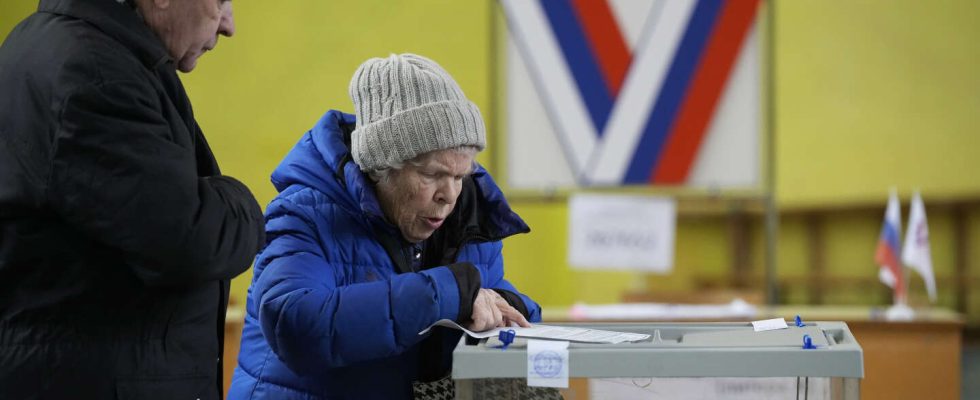There are incidents directly linked to the war: Ukrainian incursions and bombings on the Russian regions of Kursk and Belgorod, drone attacks on refineries, the explosion of a bomb in a trash can near a vote in the occupied Kherson region… But the majority of incidents that disrupted the first day of Russian presidential voting, which takes place from March 15 to 17, are of a more unexpected nature. In polling stations in the regions of Moscow, Voronezh, Rostov-on-Don and even in Crimea, individuals poured chemicals (antiseptic, ink or iodine) into the ballot boxes or onto the electoral lists. Elsewhere, others tried to set fire to ballot boxes or voting booths.
In total, fifteen such incidents were recorded. The authorities also indicated that thirteen people had been arrested during the day for damage to electoral materials, an act punishable by five years in prison.
No opposition movement, even in exile, had called for such acts, the only organized action being a call to vote in a coordinated manner on Sunday (to complicate fraud) at noon (to create a multitude of small rallies) – initiative that the authorities described as“extremist”.
Disturbing profiles
The profiles of the saboteurs are disturbing: many are elderly (an 83-year-old arsonist is found in Mytishchi, a suburb of Moscow) and most act with their phones in hand, very calm, seeming to be filming themselves. In Udmurtia, it was a member of the electoral commission who poured a product into a ballot box, shouting an enigmatic: ” It must. »
The modus operandi would rather be reminiscent of the wave of attacks committed against military recruitment offices or bank agencies in early 2023. The attackers were then often retirees defrauded or manipulated, possibly from Ukrainian territory. Strangers promised them that they could get their money back or even that they would take part in police operations. Young people also received money to sabotage railway infrastructure.
The head of the electoral commission, Ella Pamfilova, also affirmed, without further details, that these people were acting for money promised by “bastards, from abroad”. According to the commission, these incidents do not disrupt the vote, since it officially displays a record participation rate at the end of one day of 36.09%, with very high use of the remote electronic voting system, to which resorted to Vladimir Putin from an office in the Kremlin.

